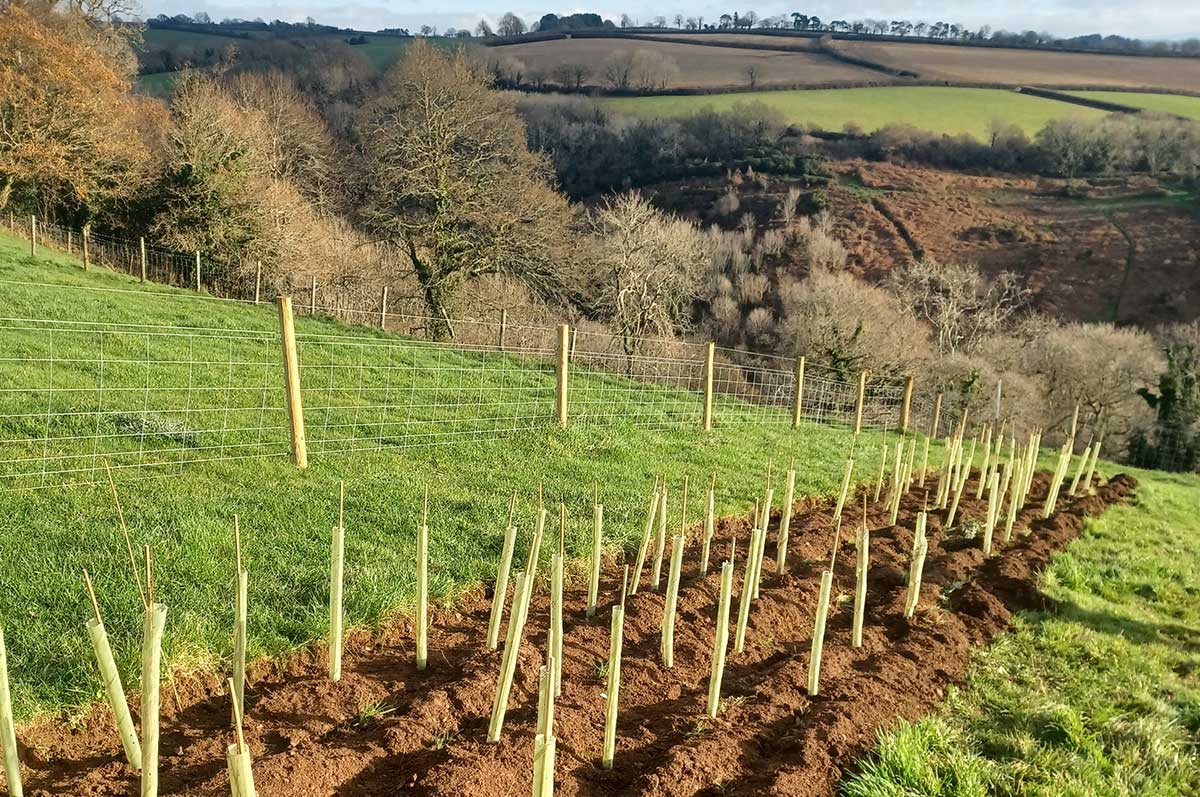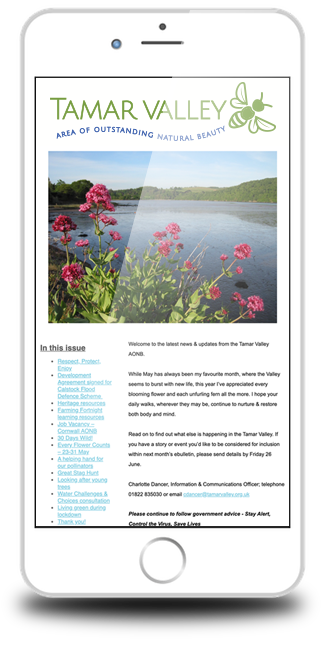We are working with farmers, landowners and communities to mitigate for climate change; improve water quality; increase tree and orchard planting and restore hedgerows. We are also providing support in the post-Brexit world and with the introduction of the new Environment Land Management Scheme (ELMS) agri-environment schemes.
Grants Available to Support Nature
Sarah Richardson, the Tamara Scheme’s Land Management Officer has been busy the last couple of months with small grant applications. There is a small pot of funding that can be awarded for the delivery of:
Woodland or habitat creation/restoration
Hedgerow planting/restoration
Orchard creation
Improvements to water quality
Natural flood management
Interpretation and recording
Support for key wildlife
Some of the projects we have supported so far include
1 a cider orchard planted with native Tamar Valley varieties,
2 extending a woodland with 100 local deciduous woodland trees, with additional protection for existing hazel and shrubs that have been recently planted,
3 and the provision of willow tit nesting boxes to provide habitat in an area where they have been sighted, for this species which is in serious decline.
These grants are aimed to help small projects which are ineligible for other grant schemes. If you think you have a project that we may be able to support, please get in touch with Sarah at sarah.richardson@cornwall.gov.uk for more information.
Working in Partnership to improve the Water Quality at Luckett Stream
Improving the water quality of our streams, rivers and tributaries is important for nature and wildlife and the Tamara Team are working with farmers, landowners and our partners including the Westcountry Rivers Trust, to improve the water quality at Luckett.
The Westcountry Rivers Trust have completed a 6-month water quality study measuring water quality parameters and invertebrate communities at 11 sites along the Luckett Stream between June and November 2022. It concluded that sites immediately below the Sewage Treatment Works along the main Luckett Stream suffer from the worst overall water quality whilst the Clitters and Trehill tributaries scored the best overall.
The report found that concentrations of various water quality parameters are not always affected by rainfall consistently. This suggests that water quality in the Luckett Stream and its tributaries is likely to be affected by a number of different sources including chronic point source pollution, such as from the Sewage Treatment Works or possible domestic septic tanks, as well as run-off from surrounding urban and agricultural land.
The report will help us to identify areas where intervention methods such as natural flood management, land management options and cultivation techniques, tree cover, riparian zones and buffer strips could have the most impact. We are looking forward to working with farmers, growers and landholders within the catchment to work towards implementing these interventions and improving the water quality.

